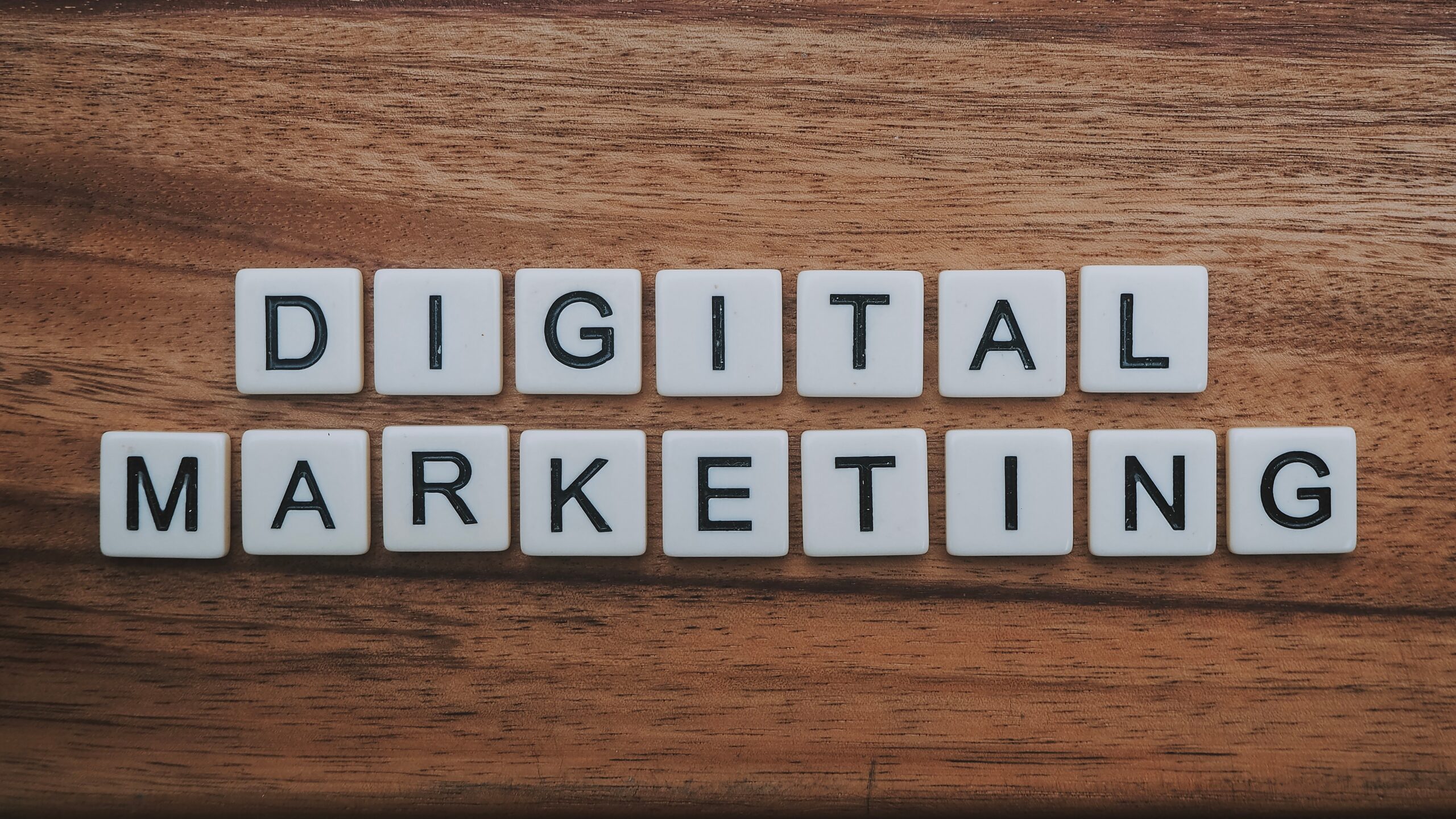Unlock your online potential with UnikBrushes - Your one-stop-shop for expert web development and digital marketing solutions.
Join BloggyTech now and stay ahead in the game with valuable insights and tips on technology, digital marketing, and personal development!
Looking for a list of trendy AI tools that can enhance and save time in your work? Check out ZynoSItes - I'm sure you'll be amazed!
Upgrade your writing game with ZynoInk - the ultimate AI-powered writing tool for students and marketing professionals. Try it now and experience the difference!
Are you looking to get the most out of your digital marketing campaigns? In today’s business landscape, it’s more important than ever to make sure that every dollar you spend on digital marketing efforts generates a strong return on investment (ROI). In this article, we’ll explore some tips and best practices for maximizing ROI on your digital marketing campaigns.
Understanding ROI in Digital Marketing
Before we dive into specific strategies, it’s important to understand what ROI means in the context of digital marketing. ROI is a measure of the profitability of an investment, typically expressed as a percentage. In digital marketing, ROI can be calculated by dividing the revenue generated by a campaign by the cost of the campaign.
For example, if you spend $1,000 on a Google Ads campaign and generate $2,000 in revenue from that campaign, your ROI would be 100%. A positive ROI indicates that a campaign is profitable, while a negative ROI means that a campaign is not generating enough revenue to cover its costs.
Tips for Maximizing ROI on Your Digital Marketing Campaigns
- Set Clear Goals and KPIs
- Know Your Target Audience
- Use Data to Make Informed Decisions
- Choose the Right Channels and Tactics
- Optimize Your Landing Pages
- Use Personalization and Segmentation
- Monitor and Adjust Your Campaigns Regularly
- Leverage Automation and AI
- Test and Experiment Continuously
- Build a Strong Brand
Set Clear Goals and KPIs
The first step in maximizing ROI on your digital marketing campaigns is to set clear goals and key performance indicators (KPIs). Without specific, measurable goals, it’s impossible to determine whether a campaign is successful or not.
When setting goals, make sure they are SMART: Specific, Measurable, Attainable, Relevant, and Time-bound. Examples of SMART goals for digital marketing campaigns might include:
- Increase website traffic by 25% within the next six months
- Generate 50 new leads per month through Facebook Ads
- Increase online sales by 15% in Q3 compared to the previous quarter
Know Your Target Audience
To maximize ROI, you need to make sure you’re targeting the right audience with your digital marketing campaigns. Spend time researching and understanding your target audience, including their demographics, interests, and behaviors. This will help you create more effective messaging and targeting strategies.
Tools like Google Analytics, Facebook Insights, and customer surveys can provide valuable insights into your target audience. Use this information to tailor your messaging and targeting to the specific needs and interests of your audience.
Use Data to Make Informed Decisions
Data is essential for making informed decisions about your digital marketing campaigns. Use analytics tools like Google Analytics, Google Ads, and Facebook Ads Manager to track performance metrics like click-through rates, conversion rates, and cost per acquisition.
Regularly review your data and use it to make adjustments to your campaigns. For example, if a certain ad is not performing well, try tweaking the messaging or targeting to see if you can improve its performance.
Choose the Right Channels and Tactics
There are countless digital marketing channels and tactics to choose from, and it’s important to choose the ones that will be most effective for your business. Consider factors like your target audience, budget, and goals when choosing which channels and tactics to focus on. Some common digital marketing channels and tactics include:
- Search engine optimization (SEO)
- Pay-per-click advertising (PPC)
- Social media advertising
- Email marketing
- Content marketing
- Influencer marketing
Optimize Your Landing Pages
Your landing pages are where your digital marketing campaigns ultimately lead your audience. To maximize ROI, it’s crucial to ensure that your landing pages are optimized for conversions.
Some tips for optimizing your landing pages include:
- Keeping the messaging consistent with the ad or email that led the user to the page
- Keeping the page simple and easy to navigate
- Using clear calls to action (CTAs)
- Reducing page load times
- Testing different variations of the page to see which performs best
Use Personalization and Segmentation
Personalization and segmentation can help you deliver more targeted, relevant messaging to your audience. Use data like past purchases, browsing history, and demographic information to segment your audience and deliver personalized messages that resonate with them.
For example, if you’re an e-commerce retailer, you might send personalized product recommendations based on a user’s past purchases. Or if you’re a B2B software company, you might send personalized case studies and whitepapers to users who have shown interest in a particular feature or solution.
Monitor and Adjust Your Campaigns Regularly
Digital marketing is an ever-changing landscape, and it’s important to stay on top of your campaigns and make adjustments as needed. Regularly monitor your campaign performance metrics and make adjustments as necessary to optimize for ROI. Some metrics to keep an eye on include:
- Click-through rates
- Conversion rates
- Cost per click or acquisition
- Return on ad spend (ROAS)
- Customer lifetime value (CLV)
Leverage Automation and AI
Automation and artificial intelligence (AI) can help streamline your digital marketing efforts and optimize for ROI. Use tools like marketing automation software, chatbots, and AI-powered ad platforms to automate repetitive tasks and make data-driven decisions.
For example, you might use a chatbot to automatically respond to customer inquiries on your website, or use an AI-powered ad platform to automatically adjust your ad targeting based on performance data.
Test and Experiment Continuously
Digital marketing is all about testing and experimenting to find what works best for your business. Continuously test different variations of your messaging, targeting, and creative to see what performs best. Some things you might test include:
- Ad copy and creative
- Landing page design and messaging
- Targeting options
- Campaign timing and frequency
- Build a Strong Brand
Finally, building a strong brand is essential for maximizing ROI on your digital marketing campaigns. A strong brand can help differentiate your business from competitors, build trust with your audience, and increase customer loyalty.
Invest in building a strong brand identity and messaging that resonates with your target audience. Consider things like your brand voice, values, and visual identity.
Conclusion
Maximizing ROI on your digital marketing campaigns is essential for driving business growth and success. By setting clear goals, understanding your target audience, using data to make informed decisions, and choosing the right channels and tactics, you can optimize your campaigns for success. Don’t be afraid to test and experiment, and always keep a close eye on your performance metrics.
FAQs
Q1. What is ROI in digital marketing?
ROI stands for return on investment, which is a measure of the profitability of an investment. In digital marketing, ROI is a metric used to measure the financial return on a digital marketing campaign. It takes into account the cost of the campaign and the revenue generated as a result of the campaign.
Q2. How can I optimize my landing pages for conversions?
To optimize your landing pages for conversions, keep the messaging consistent with the ad or email that led the user to the page, keep the page simple and easy to navigate, use clear calls to action (CTAs), reduce page load times, and test different variations of the page to see which performs best.
Q3. What are some common digital marketing channels and tactics?
Common digital marketing channels include search engine marketing (SEM), social media marketing, email marketing, content marketing, and display advertising. Common tactics within these channels include search engine optimization (SEO), pay-per-click (PPC) advertising, influencer marketing, lead generation campaigns, and retargeting ads.
Q4. How can I use personalization and segmentation in my digital marketing campaigns?
Personalization and segmentation can help you deliver more targeted, relevant messaging to your audience. Use data like past purchases, browsing history, and demographic information to segment your audience and deliver personalized messages that resonate with them. You can use personalized product recommendations, personalized case studies, whitepapers and newsletters to deliver a more targeted messaging.
Q5. Why is building a strong brand important for digital marketing ROI?
Building a strong brand is important for digital marketing ROI because it can help differentiate your business from competitors, build trust with your audience, and increase customer loyalty. A strong brand can create an emotional connection with customers and help to establish your business as a leader in your industry. This can lead to increased sales and revenue, as well as a higher lifetime value of your customers.
Unlock your online potential with UnikBrushes - Your one-stop-shop for expert web development and digital marketing solutions.
Join BloggyTech now and stay ahead in the game with valuable insights and tips on technology, digital marketing, and personal development!
Looking for a list of trendy AI tools that can enhance and save time in your work? Check out ZynoSItes - I'm sure you'll be amazed!
Upgrade your writing game with ZynoInk - the ultimate AI-powered writing tool for students and marketing professionals. Try it now and experience the difference!
Best Regards,
Amar



